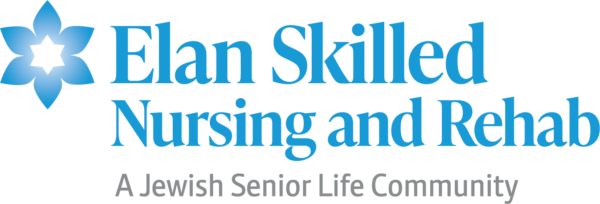A Dose of Prevention is Worth a Pound of Cure – Staying Healthy Starts with Vaccination
Fall is time for beautiful foliage – football- festivals and ….the flu! Yes, flu season is almost upon us! Just as we schedule time for other wellness screenings, it is important to schedule your vaccines. When planning for your annual flu vaccine, consider other vaccinations that may be beneficial to preventing common illness. As we age, our immune system weakens making seniors more susceptible to diseases and infections. Vaccinations can strengthen our immune system to prevent illness and also reduce the risk of complications and hospitalizations.
Influenza a/k/a “The Flu”
Also referred to as influenza, this illness is caused by an infection in our respiratory system, mainly the nose, throat, and lungs. While Influenza is commonly called the flu, it is different from the stomach “flu”, a viral infection that causes diarrhea and vomiting. Most people with influenza get better on their own; however, the flu can result in serious or life-threatening illness. The CDC estimates that between 2010 and 2020, the flu has resulted in 9– 41 million illnesses, between 140,000 – 710,000 hospitalizations and 12,000 – 52,000 deaths annually.
The best way to reduce the risk of flu and its potentially serious complications is by getting vaccinated each year. Everyone 6 months and older should get a flu vaccine every season with rare exceptions. Vaccination is particularly important for people who are at higher risk of serious complications from influenza. Seniors are in a higher risk group of developing complications from the flu.
Most people who get flu will recover in a few days to less than two weeks, but some people will develop complications (such as pneumonia) because of flu, some of which can be life-threatening and result in death. Sinus and ear infections are examples of moderate complications from flu, while pneumonia is a more serious flu complication. Other possible serious complications often triggered by the flu can include inflammation of the heart, brain or muscle tissues, along with multi-organ failure (for example, respiratory and kidney failure). Flu virus infection can trigger an extreme inflammatory response in the body and can lead to sepsis, the body’s life-threatening response to infection. Flu can also make chronic medical problems worse. For example, people with asthma may experience asthma attacks while they have flu, and people with chronic heart disease may experience a worsening of this condition triggered by flu. The flu vaccine can help prevent these complications and reduce the severity of the symptoms.
Pneumococcal Disease and Pneumonia
According to the CDC, pneumonia is a lung infection usually caused by bacteria, viruses, or fungi. Pneumococcal disease is common in young children, but older adults are at greatest risk of serious illness and death. Vaccines help protect against complications such as pneumonia sinusitis, meningitis, and otitis media.
CDC recommends pneumococcal vaccination for all children younger than 5 years old and all adults 65 years or older. There are several different types of pneumococcal vaccines and we recommend you talk to your doctor about what is best for your specific situation.
Shingles
Shingles {herpes zoster} is a painful rash caused by Varicella zoster, the same virus that causes chicken pox. If you’re one of the 99% of adults over 50 years old who have had chickenpox, the virus that causes shingles is inside your body and can reactivate at any time. 1 in every 3 people in the US will get shingles in their lifetime. No matter how healthy you feel, your immune system declines as you age, and that puts you at an increased risk for shingles.
CDC recommends two doses of the recombinant zoster vaccine {Shingrix} to prevent shingles and related complication in adults 50 years and older. Adults 50 years and older should get two doses of Shingrix, separated by 2 to 6 months. Research shows that Shingrix is more than 90 percent effective at preventing shingles, and according to the CDC, immunity lasts for at least seven years. There is no maximum age for getting vaccinated. Shingrix is available in doctor’s offices and pharmacies.
COVID-19
We are all familiar with COVID-19 (coronavirus disease 2019) is a disease caused by a virus named SARS-CoV-2. It can be very contagious and spreads quickly. Since early 2020, over one million people have died from COVID-19 in the United States.
COVID-19 infection most often causes respiratory symptoms that can feel much like a cold, the flu, or pneumonia. It may also attack more than your lungs and respiratory system. Other parts of your body can also be affected by the disease. Most people with COVID-19 have mild symptoms, but some people become severely ill. Some people including those with minor or no symptoms will develop post-COVID Conditions – also called “Long COVID.” Seniors along with those who are immune compromised and have certain disabilities and underlying health conditions are more likely to suffer severe symptoms if infected. These are all good reasons to get vaccinated.
COVID-19 vaccines are readily available and effective at protecting people from getting seriously ill, being hospitalized, and dying. As with other vaccine-preventable diseases, you are best protected from COVID-19 when you stay up to date with the recommended vaccinations.
Additional doses of COVID-19 vaccines are recommended for those seniors aged 65 years and older as well as those with moderate to severe immunocompromised states. Talk to your healthcare provider about additional update doses.
Why Schedule Your Vaccination in the Fall?
According to the CDC, older adults should get their flu shots in September or October but no later than the end of October. While influenza viruses spread year-round, activity peaks between December and February. Getting vaccinated in the fall allows your body time to build up its immunity to the height of the flu season. The influenza vaccine is updated annually to reflect which strains will be seen in the upcoming year. The COVID – 19 vaccines have been updated a few times since the initial vaccine development to address additional strains of the virus. It is expected that an updated vaccine to provide protection against the Omicron variant will be available in the fall of 2023. You can get shingles and pneumococcal disease year-round. These vaccines can be given at any time and typically, in conjunction with other vaccines.
Get Vaccinated Today!
As we age, our immune system’s ability to fight off infections weakens, which makes seniors aged 65 years and older more vulnerable to diseases like influenza, covid, pneumonia and shingles. Vaccines are key for the well-being and health of our senior population. Call your doctor TODAY and protect yourself from these preventable illnesses. By taking the time to prioritize your self-care, you can manage your health and ENJOY LIFE!
Elan Skilled Nursing and Rehab Center, A Jewish Senior Life Community welcomes individuals of all faiths and religious affiliations. We invite you to explore our extraordinary senior living communities, where older adults lead fulfilling lives while enjoying a vibrant lifestyle and the highest quality care and services. As a not-for-profit, faith-based senior living organization dedicated to fostering deep connections, we nurture all minds, all bodies, all spirits.
Our senior living communities, deeply rooted in Northeastern Pennsylvania, offer a full continuum of care, so you can LIVE YOUR BEST LIFE today while creating a strong plan for tomorrow. To learn more about the Elan Skilled Nursing and Rehab Center, please contact Melissa Bednar at 570-344-6177.





